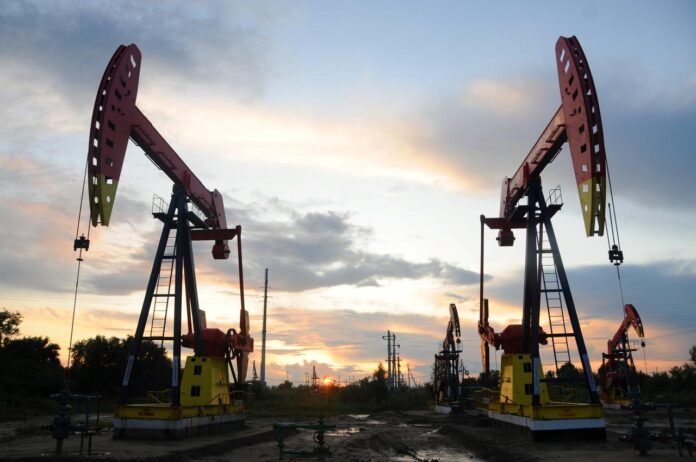NEW YORK: Oil prices rose about 2pc on Friday after Iranian media said a state-owned oil tanker had been attacked in the Red Sea near Saudi Arabia, pushing Brent crude above $60 a barrel for the first time this month.
Brent crude futures LCOc1 gained $1.31, or 2.2pc, to $60.41 a barrel by 11:27 a.m. EDT (1527 GMT), after earlier reaching a session high of $60.65 a barrel.
West Texas Intermediate (WTI) crude CLc1 futures rose 97 cents, or 1.8pc, to $54.52 a barrel. It earlier hit $54.87 a barrel.
The gains were tempered by the International Energy Agency’s forecast for weakened demand in 2020. Still, Brent and WTI were headed for their first weekly increases in three weeks. Brent was on track to rise 3.4pc for the week, while WTI was set to rise 3.3pc.
The Iranian Suezmax crude tanker was struck in the Red Sea off Saudi Arabia’s coast on Friday, Iranian media said, with various reports differing on the level of damage caused.
The National Iranian Tanker Company (NITC) said the ship was damaged but stable and denied reports it had been set ablaze.
Tensions in the Middle East have escalated in the wake of attacks on tankers and US drones in the Strait of Hormuz, a key shipping artery for the global oil trade.
The United States is sending more troops – potentially thousands – to Saudi Arabia in the wake of the attacks on Saudi Aramco facilities. It did not specify how those troops would be used.
Both oil benchmarks are set to record their biggest daily rise since Sept 16, the first trading day after attacks on Saudi installations knocked out more than half of the kingdom’s crude output and temporarily pushed oil prices up by about 20pc.
Iranian oil exports are under US sanctions that have diminished Iran’s impact on the global supply picture.
“The market still has fresh memories of the Saudi Arabia attacks and the very quick price reversals afterwards. The price results of attacks this year have not been sustained in terms of risk premium,” said Petromatrix analyst Olivier Jakob.
“In terms of oil prices, the impact is limited unless you think Iran is going to retaliate in the Strait of Hormuz.”
The International Energy Agency (IEA) on Friday said that global oil markets had recovered quickly from the Saudi attacks and even face oversupply next year as global demand slows.
“Intuitively, the precision attacks on Saudi Arabia and the possibility of a repeat should keep the market on edge,” the IEA said in its report. “There should be talk of a geopolitical premium on top of oil prices.”
Troubled economic prospects for 2020 prompted the IEA to reduce its forecast for oil demand growth by 100,000 barrels per day (bpd) to 1.2 million bpd.



































